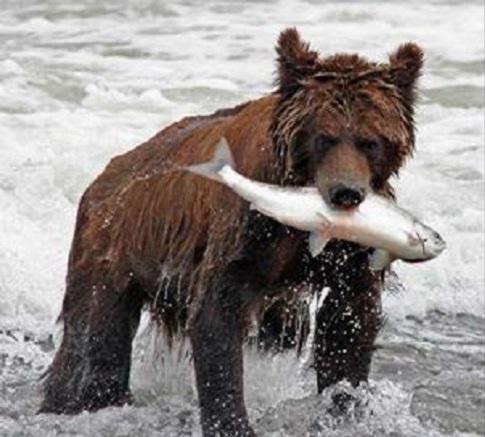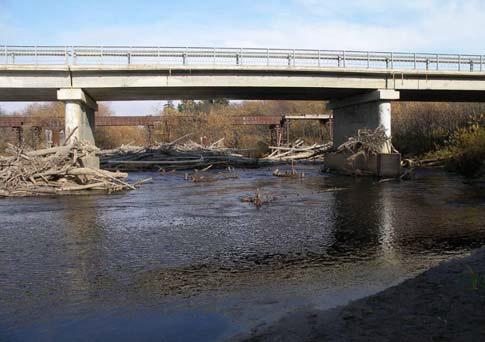Sergey Didenko
The two aims of this project are:
-to apply experience of the Conservation Action Plan (CAP) to the Dagi river basin (north-east Sakhalin);
-to carry out a comprehensive environmental survey of the Dagi watershed which will serve as a basis for a conservation plan.

Bear and salmon. © Arbuzov.
In 2007, the SSI Center held a river prioritization seminar. Local and international specialists participated in the process of choosing rivers upon which the SSI Centre should focus its efforts; it shows that Langry, Dagi and 4 other river basins have a highest priority for Sakhalin. These rivers have a high level of biodiversity, pristine habitat and a low level of development threats. Moreover, their basins have unique habitat with both red-listed species such as the Sakhalin Taimen and commercial salmon species such as pink and chum.

Dagi river.
After designing the CAP for the Langry River in 2008 and the beginning of its implementation on the ground in 2009, we decide to conduct an analogous project in the second highest priority river on Sakhalin the Dagi river basin. Our first scientific expedition to the Dagi in 2009 has confirmed the acute need for its conservation.
Salmon are an ideal focal point for conservation activities on our island, as they support over 190 other terrestrial and aquatic species. Based on our experience on the Langry River conservation planning project, we have learned that for achieving of the long lasting contribution to conservation of salmons species it is important to involve local stakeholders. We have created a new mechanism for stakeholder engagement—watershed councils.
Starting in 2010, the Nogliky’ Watershed Municipal Council (created in 2009), will cooperate with government agencies, businesses, and community organizations in implementing a conservation action plan (CAP) on the Dagi River. Participation in the local Nogliky administration Council, by representatives from the Federal Science Institute “Sakhalinribvod”, the Federal fishery agency, local indigenous groups, the Federal Security Service of Russia, the Nogliky’ fishery association and other stakeholders, will help allow a more sustainable and efficient project and success in the conservation of salmon and their habitat.
Moreover, with assistance of the Council and support of educational institutions and local NGOs, we will integrate educational elective courses called “Salmon Watch” into local schools. We hope to attract children (as a volunteers), during the summer time to implement the CAP on the ground.